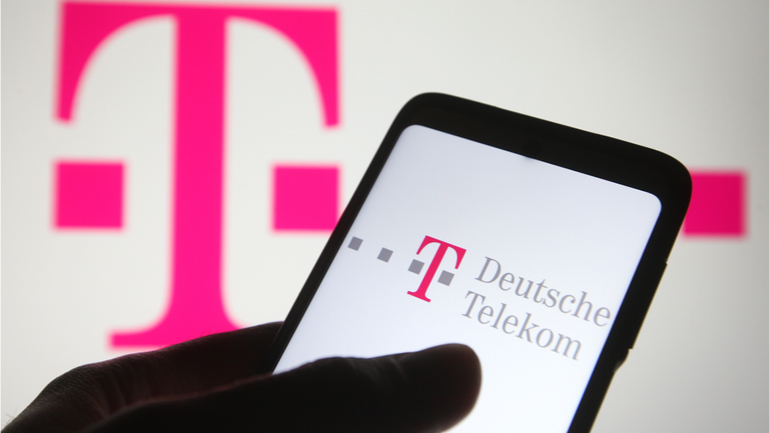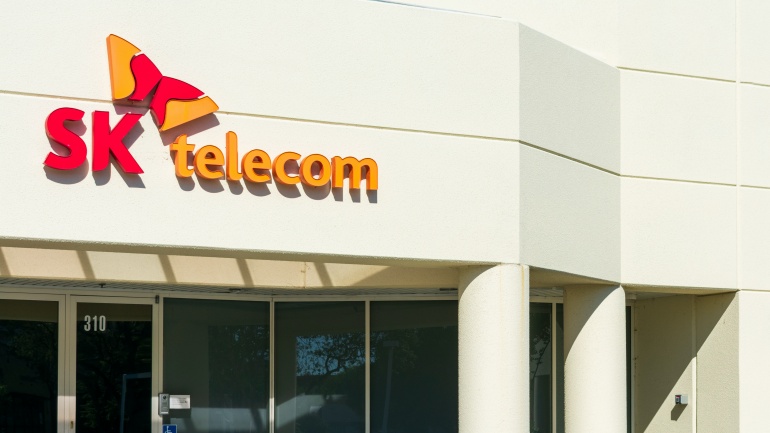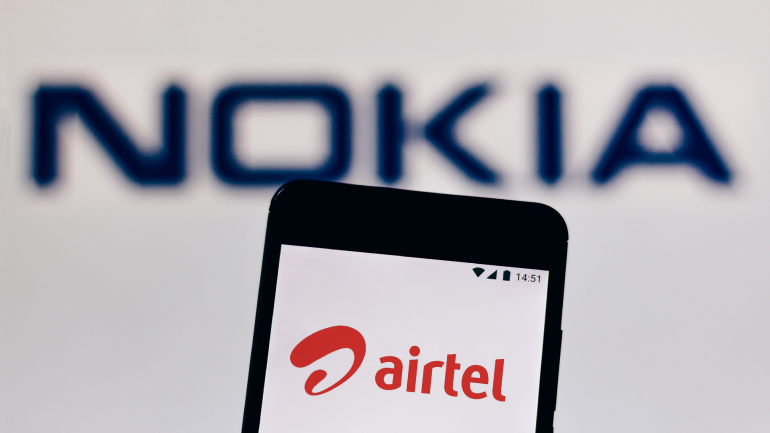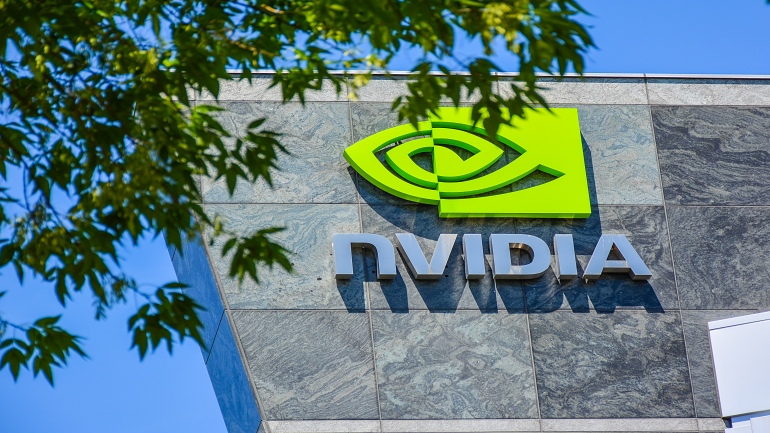Telecommunications giant Orange and technology company SmartKey have created the first Blockchain of Thing (BoT) SIM card to implement access control and other smart city functions on a mobile phone. Thanks to the new partnership, access control, smart bikes, utilities and other smart city elements will soon be available to manage through blockchain technology. The partnership is based on the SmartKey pilot program “Rescue without Barriers”, which allows the Olsztyn city rescue services in Poland to have instant access to each safe area and building in their district using blockchain. The technology enables hospital barriers and other gates to automatically unlock and open for rescue vehicles, thereby reducing response times. This is one example of many possible access control features based on blockchain and connectivity in the licensed operator’s band, setting the scene for Orange as the first global operator to use blockchain to promote the smart cities of…
Artificial intelligence is exerting its influence on almost every sector, including telecommunications. This technology has begun to add impressive new dimensions to many industries, accelerating the digital transformation. According to Tractica, annual investment in telecommunications AI software is expected to grow to more than $11.2 billion in 2025. The telecommunications industry is at the heart of technological growth and digital transformation. The industry is huge. 54 telecommunications companies are listed on the Forbes Global 2000 list. They account for more than $3.4 trillion in assets and almost $1.5 trillion in income in 2020. The potential of AI in the telecom industry is immense. By taking advantage of this technology, organizations can create supplementary revenue streams using business niches they had not even thought could be profitable. The demand for higher quality telecom services and a better customer experience grows. Therefore, service providers need to look for smarter, more powerful and…
Deutsche Telekom (DT) has announced that it is investing an undisclosed amount in the blockchain payment platform Celo. The company also purchased an unspecified amount of Celo digital tokens to be used on the platform. Deutsche Telekom will be the first telecommunications company to join the Celo Alliance for Prosperity. Celo is an open-source blockchain ecosystem that focuses on making decentralized financial (DeFi) systems and tools accessible via the smartphone. The Celo ecosystem includes a decentralized, proof-of-stake blockchain technology package, a native asset (CELO), two stablecoins (cUSD and cEUR) and the Celo Foundation Alliance of Prosperity. The company was launched in 2017 and has maintained a low profile in the crypto market. However, this has changed in recent months, in part due to the recent $20 million funding raised by blue venture capital firms, including Andreessen Horowitz. This move by DT represents their initial foray into and testing…
When a new technology or opportunity is created, it is up to industry verticals to decide how, when, and where to exploit its potential. Communication service providers (CSPs) will find it challenging to adopt and implement technology such as blockchain. We have already discussed the benefits and possibilities of blockchain for telecommunication providers. While the benefits of adopting blockchain in the telecommunications business are clear, putting the theory into practice may not come easily. It is important that Communication Service Providers (CSPs) work in synergy, looking beyond obvious solutions if they are to take full advantage of the potentially huge advantages distributed ledger technology can offer. The following advice on adopting blockchain are based on the onerous experience of early adopters of blockchain. Collaborating and sharing of information Telecommunications companies can substantially improve their services by sharing or joining forces with each other. It is vital that these companies work together…
SK Telecom, the top mobile operator in South Korea, has teamed up with its security subsidiary ADT Caps Co. and local video management solutions company Innodep Inc. to develop an artificial intelligence (AI) solution to meet the growing demand for efficient and advanced video analysis services. Under the agreement, the trio will develop services to effectively manage video surveillance systems in the private and public sectors of the growing local market. The ultimate goal of the partnership is to create real-time security services for the public and industry, while addressing existing defects in the video analysis systems, such as false alarms. As the deployment of CCTV in the public and private sectors is expanding rather swiftly to enhance safety and security, SKT said the solution will increase cost-effectiveness and accuracy by optimizing its AI chip and algorithms. This solution will be linked to Innodep’s intelligent management platform and…
Telinta, a global leader in cloud-based VoIP switching and billing solutions, has announced the deployment of additional infrastructure in Bangalore, India. These new facilities expand the company’s previous deployments in key global telecommunications markets in North America, Europe and Asia. The infrastructure deployment in India complements Telinta’s already existing facilities at 165 Halsey Street near New York, as well as additional infrastructure in Dallas, Frankfurt, London, New York, Newark, Singapore, Tokyo and Toronto. The facilities in these global markets provide Telinta VoIP’s service providers’ customers with significant additional availability, reliability and performance. The company’s award-winning cloud-based platform TeliCoreTM is the largest hosted softswitch of its kind anywhere in the world. This carrier-grade Class 4 and 5 platform integrates cutting-edge switching, billing and customer management to offer white label solutions to VoIP providers. Alex Ferdman, CEO of Telinta, said: “Telinta has deployed infrastructure around the world, so that…
The Indian telecom giant Bharti Airtel has selected Nokia’s CloudBand-based software products to power its Voice over LTE (VoLTE) network. Nokia stated that this network supports more than 110 million customers, making it the largest cloud-based VoLTE network in India and the world’s largest VoLTE service managed by Nokia. According to the Finnish telecom gear maker, the deployment of cloud-based VoLTE will enable Airtel to provide its mobile customers with faster, more reliable and cost-effective call connectivity. Nokia’s solution, which has been deployed to cover all 22 telecom service areas in India, uses commercial, off-the-shelf IT hardware with cloud-based Virtual Network Functions (VNFs). Nokia noted that cloud-native VNFs consume far less power and space compared to traditional 2G or 3G circuit-switched legacy cores. With Nokia’s VoLTE platform, Airtel will be able to reduce its 3G network traffic and use the freed-up spectrum to deploy 4G / LTE services for higher speeds…
The Dublin, Ireland-based company AirSpeed Telecom has partnered with Intellicom, an international business telephony and contact center provider, to integrate new Voice over IP (VoIP) solutions into the telecommunications products and bandwidth services provider’s existing product portfolio. AirSpeed Telecom said that this integration will assist end-users in their quest to achieve superior operational excellence and offer an enhanced customer experience. According to the statement, the new VoIP solutions encompass a full-featured business telephony and contact center system that carries voice and other multimedia traffic across broadband networks. AirSpeed Telecom noted that by leveraging the power of IP networks, businesses can improve customer service, increase workplace mobility and enhance remote working solutions, and also reduce telecommunications costs. “Our customers’ needs are changing and at AirSpeed, we like to think that we’re able to innovate to meet those developing requirements. While best known for high-class connectivity, AirSpeed is increasingly offering business-class…
According to the most recent report from Canalys Cloud Channels Analysis, the worldwide spending on cloud infrastructure services has increased by more than one third (37.6%) year-on-year, soaring to USD 26.3 billion in the second quarter of 2019. The ranking of the leading cloud service providers remains unchanged, with Amazon Web Services (AWS) dominating at 36.1 percent growth, with revenue of over USD 8.3 billion, and a total market share of 31.5 percent. Microsoft Azure comes second with its sales growing by 63.6 percent to just under USD 5 billion, increasing its marketing share to 18.1 percent. In third place is Google Cloud with a 9.5 percent market share, followed by Alibaba Cloud in the fourth position. In total, cloud infrastructure revenue grew by USD 7.2 billion compared to a year ago, and the current expansion marks “the biggest ever quarterly increase in terms of value, highlighting the continued robust…
The American chipset manufacturer Nvidia is rolling out its EGX platform to bring real-time artificial intelligence (AI) to the edge of the network. Nvidia EGX is an accelerated computing platform, which boasts low-latency AI that enables companies to perceive, understand and act in real time on continuous streaming data between 5G base stations, warehouses, retail stores, factories and beyond. AI computing will occur at the edge of the network, where sensors collect data before it is sent to cloud-connected data centers. This platform is expected to satisfy the increasing demand for AI applications to assist numerous devices streaming continuous raw sensor data and is designed for high-throughput AI at the edge where data is primarily sourced to achieve instantaneous and guaranteed response times while reducing bandwidth to the cloud. According to the company, by 2025, there could be up to 150 billion machine sensors and the Internet of Things (IoT) devices streaming…













